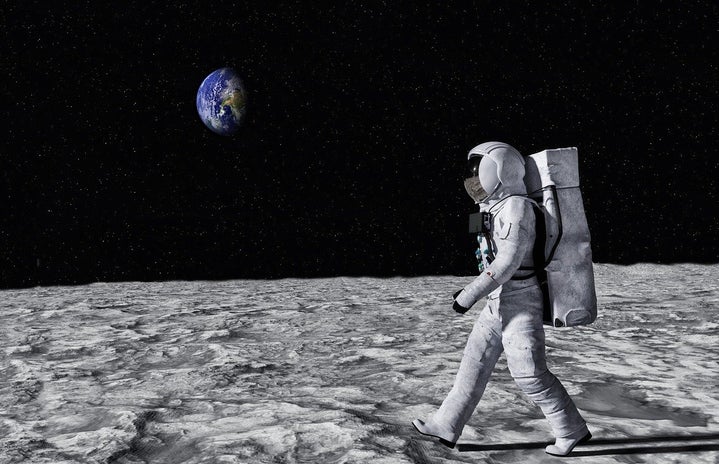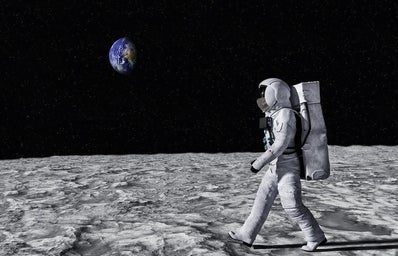I applied to NASA as a joke. Well, kind of.
Last September, I clicked through an email sent by Paul Jensen, the School of Journalism and Mass Communication’s internship and placement coordinator. The email encouraged communications students to pursue an internship with NASA. Yes, the NASA – aka the National Aeronautics and Space Administration – aka the government agency that sends people and machinery to space. At the time, I didn’t even realize that NASA had communications internships.

‘This is it,’ I thought. ‘I’m going to space.’
Just to be clear, I didn’t go to space.
I was supposed to go to Washington D.C., where I would’ve had the privilege of working in a NASA facility, interviewing astronauts and scientists, and interacting with NASA leadership. Instead, I worked from my hometown, Lake Elmo, Minnesota. COVID-19 truly put a dent in my plan to learn all the secrets of NASA’s space research. I mean, if anyone knows about aliens, it’s got to be NASA.
Nevertheless, I am unbelievably grateful for my opportunity. Working from home can be a challenge, but it can also be more rewarding than the physical experience. Let me explain.
To start, I saved so much money with my virtual internship. Since I lived with my parents this summer rather than renting an apartment in the D.C. area, I saved around $2000 in rent alone. Not to mention, I saved the cost of an airline ticket to D.C., gas to get to the NASA campus, groceries, utilities, and eating at restaurants.
Also, I was actually given more freedom than usual. I could work pretty much any time I wanted to, as long as I was working 40 hours a week and communicating with my mentors. Hour-long lunch breaks became the norm, provided I answered time-sensitive emails and messages. I could wear anything I wanted, to a certain extent, of course. Most days I was wearing sweats with a NASA t-shirt or a nice, plain top. That’s the beauty of interacting over a computer screen where you can control the camera angle and background. I also had a few meetings by phone call rather than video call. My coworkers never knew that I was sunbathing on my patio when we did our weekly round tables.
Something unique about this summer’s NASA interns is that we had the opportunity for cross-agency events and workshops. Every week, we’d be emailed a list of the events being held over video conference. We could log on with our NASA laptops/emails and watch astronauts explain what it’s like to eat food in space, engineers talk about the logistics of launching a rocket, and headquarters discuss how to improve our resumes and build work portfolios. With an Internet connection and the click of a button, the entirety of NASA’s network was at our fingertips.
Being online, I was more productive than I would have been in-person. Every morning, I woke up at 6:45 a.m. and worked out with my sister. By 9 a.m., I had showered, eaten breakfast, and poured myself a mug of hot coffee. When 9:15 a.m. rolled around, the caffeine was hitting, and I’d begun the daily process of contacting sources, transcribing interviews, and compiling information into a cohesive story. Throughout my internship, I wrote six stories, published three (three are still in the editing and approval process), interviewed 16 sources, and went to countless virtual meetings. I didn’t have to worry about travel time or access to resources, which would have cut into my productivity. I worked where I lived, and I had everything I needed on my NASA laptop.

On the surface, virtual internships seem inadequate. I mean, the whole point of an internship is to get real, hands-on experience. And yet, virtual internships can truly teach you a lot. For those of us who don’t need a lab or cubicle or any sort of physical location to do our jobs – who can work from home with just a table, a laptop, and a notepad – these experiences can be more rewarding than in-person internships.
We are in a pandemic. That is a reality, and it isn’t changing any time soon. As college students, we need experience now; we can’t wait until this thing is over. And so, virtual internships are the new normal, and they can be pretty damn cool.




